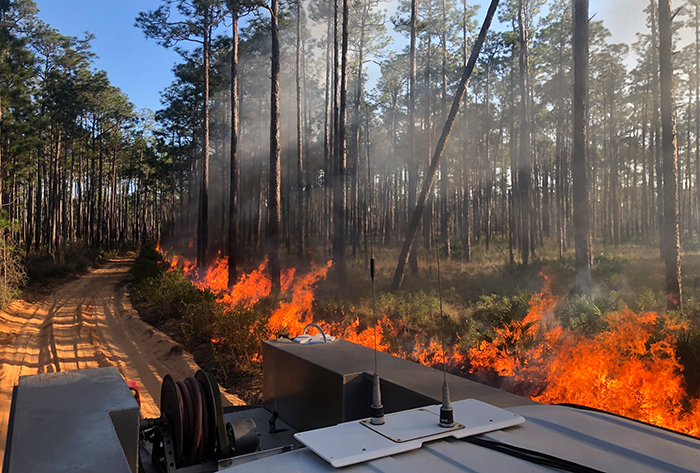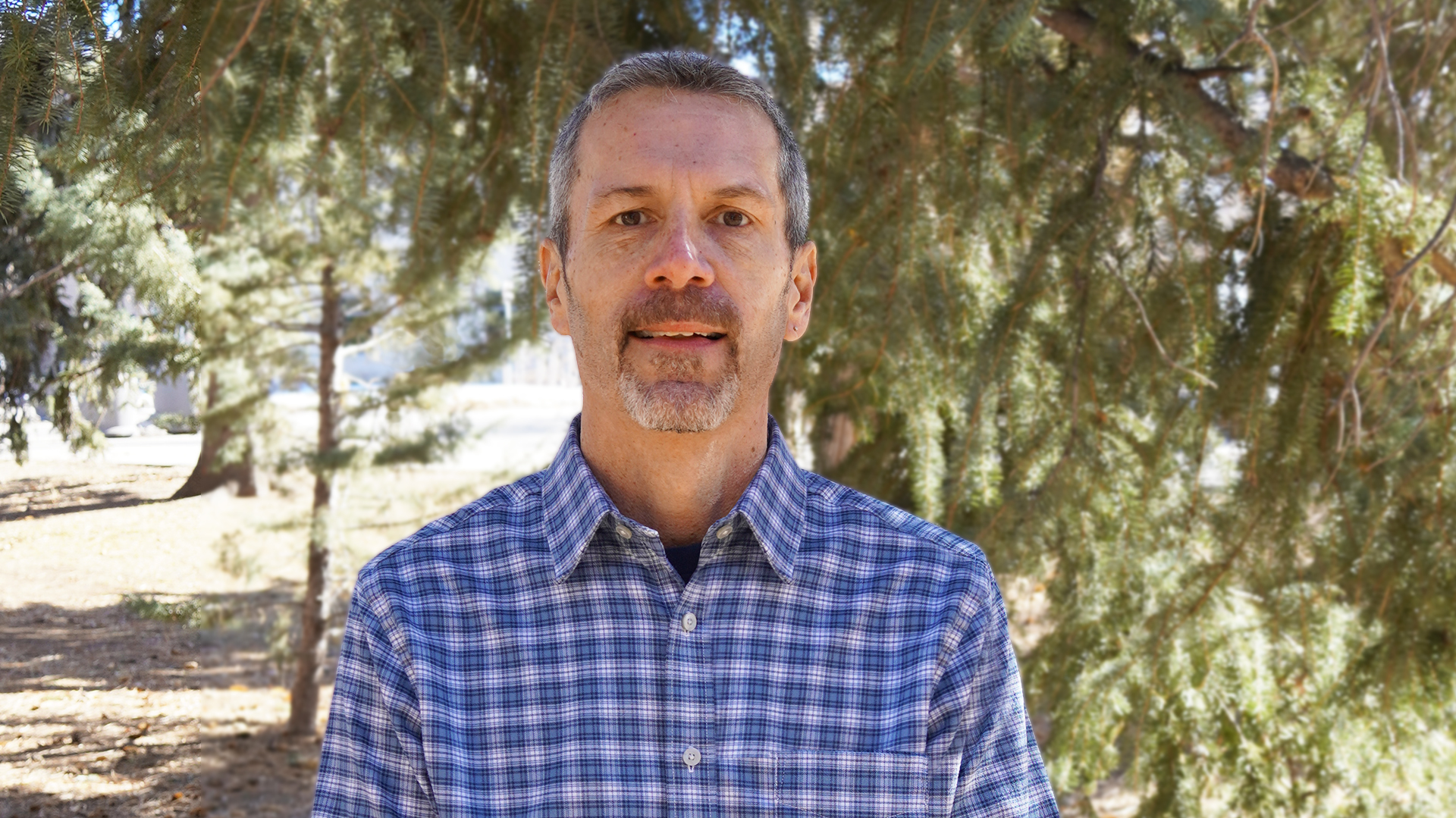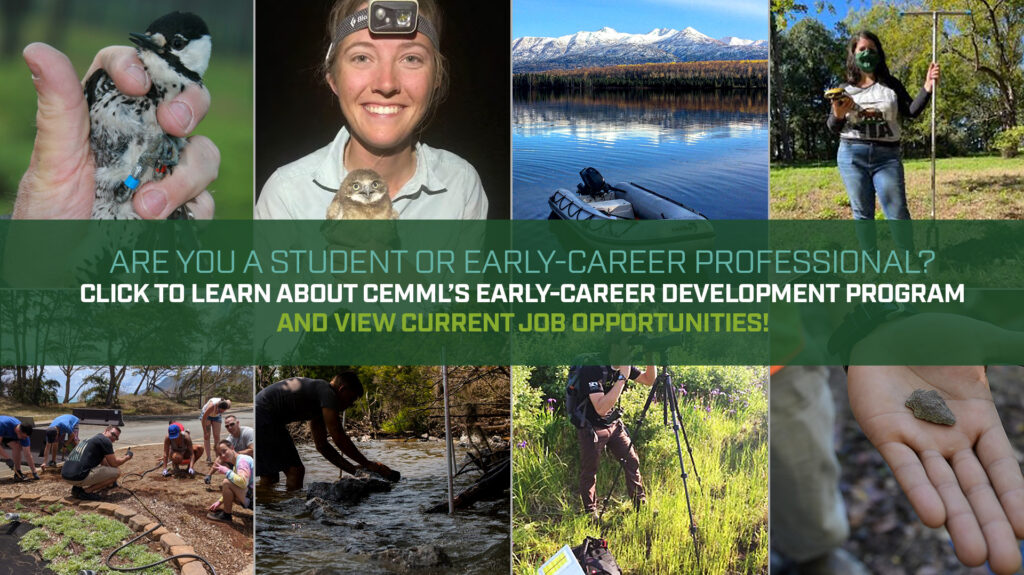BY TIM SCHOMMER
Bill Sprouse may be new to the leadership committee that runs CSU’s Center for Environmental Management of Military Lands (CEMML), but he’s no stranger to either organization. This June will mark his 29th year at CEMML, the last 15 of which he’s has served as a principal investigator with a focus on wildland fire. In January, Sprouse accepted a position as assistant director, joining the executive committee that oversees CEMML’s direction and strategy.
“Over the course of my career at CEMML, I’ve picked up quite a bit of knowledge about how CSU works and how we work with the federal government,” said Sprouse. “Having been here for so long, I’m hoping I can hit the ground running and bring value to the committee and to the rest of the organization.”
The move to assistant director felt like a natural progression for Sprouse and a challenge he welcomed. CEMML has seen massive growth during his tenure with the organization. He joined a team of just 15 staff when he arrived on the Fort Collins campus in 1994, and now helps lead more than 700 employees, most of whom work on site at military installations.
Despite the challenges inherent in an organization the size of CEMML, which offers broad expertise in natural and cultural resources management, has a global presence, and brings in more than $100 million in project funding annually, Sprouse sees an opportunity to build greater unity among staff. As the organization has grown since its origin in 1985, “there has been a tendency for us to become stovepiped in our respective areas and less collaborative in some ways,” said Sprouse, “The diverse perspectives that our staff bring to the table have played a huge role in CEMML’s growth and success over the years and I’d like us to continue to tap into that resource.”

Sprouse’s perspective on the importance of collaboration and knowledge sharing stems from his early career in data management and through his most recent role as principal investigator. After earning a bachelor’s degree and then a master’s in Forest Science from the University of Illinois in 1989, Sprouse began his career at the U.S. Army Corps of Engineer’s Construction Engineering Research Laboratory (CERL) in Champaign, Illinois. While there, he provided data management support for range and training land assessment. In 1994, Sprouse came to CSU, bringing that data management expertise to an organization still finding its footing.
“When I arrived, CEMML had a couple of people who did the budgets and tracked everything,” Sprouse said. He helped develop an internal database to track purchases and funding and taught others how to use it. Eventually, Sprouse transitioned away from data management and began to oversee natural resource and fire support projects at Eglin Air Force Base in Florida. In 2012, the Air Force Wildland Fire Branch was created to manage increasing wildland fire threats to Air Force missions, and CEMML supported this effort with expertise and personnel. Wildland fire became Sprouse’s primary focus as principal investigator.
So, what about CEMML and its work has kept Sprouse inspired over his nearly 30-year career?
“I think it’s the people that we employ,” said Sprouse. “We have some very talented staffers across a lot of different fields. Whether it’s natural or cultural resources, it’s interesting to be around people with such deep knowledge and a passion for what they do.”
He attributes much of CEMML’s success to the innovation and adaptability of its staff as they work to meet or exceed the expectations of federal partners and anticipate emerging needs.
He cautions against too-rapid growth, though, given that CEMML has more than doubled its project funding over the last eight years. “At some point, do we keep getting bigger?” asked Sprouse. “Or do we need to find our ceiling? I don’t want us to get to a point that we’re taking on so much that quality of work suffers and the relationships that we have with people suffer.”
At the same time, CEMML doesn’t seem to be slowing down anytime soon and Sprouse sees opportunity for the next generation of environmental professionals to continue CEMML’s legacy of providing quality environmental services to the federal government. CEMML regularly posts entry-level positions at its various locations, and recently launched its Early-Career Development Program, which provides short-term, paid job opportunities for students and recent graduates to learn new skills, receive mentorship, and make career-aiding connections.
“Introducing young professionals to job opportunities opens up a whole career path for them that they didn’t even know existed,” said Sprouse. “I’m excited for the opportunity to support CEMML’s talented team and help ensure its continued success for years to come.”
 Bill Sprouse, a principal investigator and natural resource expert, recently joined CEMML’s executive committee as an Assistant Director. Sprouse first joined CSU/CEMML in 1994. (Photo by Tim Schommer)
Bill Sprouse, a principal investigator and natural resource expert, recently joined CEMML’s executive committee as an Assistant Director. Sprouse first joined CSU/CEMML in 1994. (Photo by Tim Schommer) 